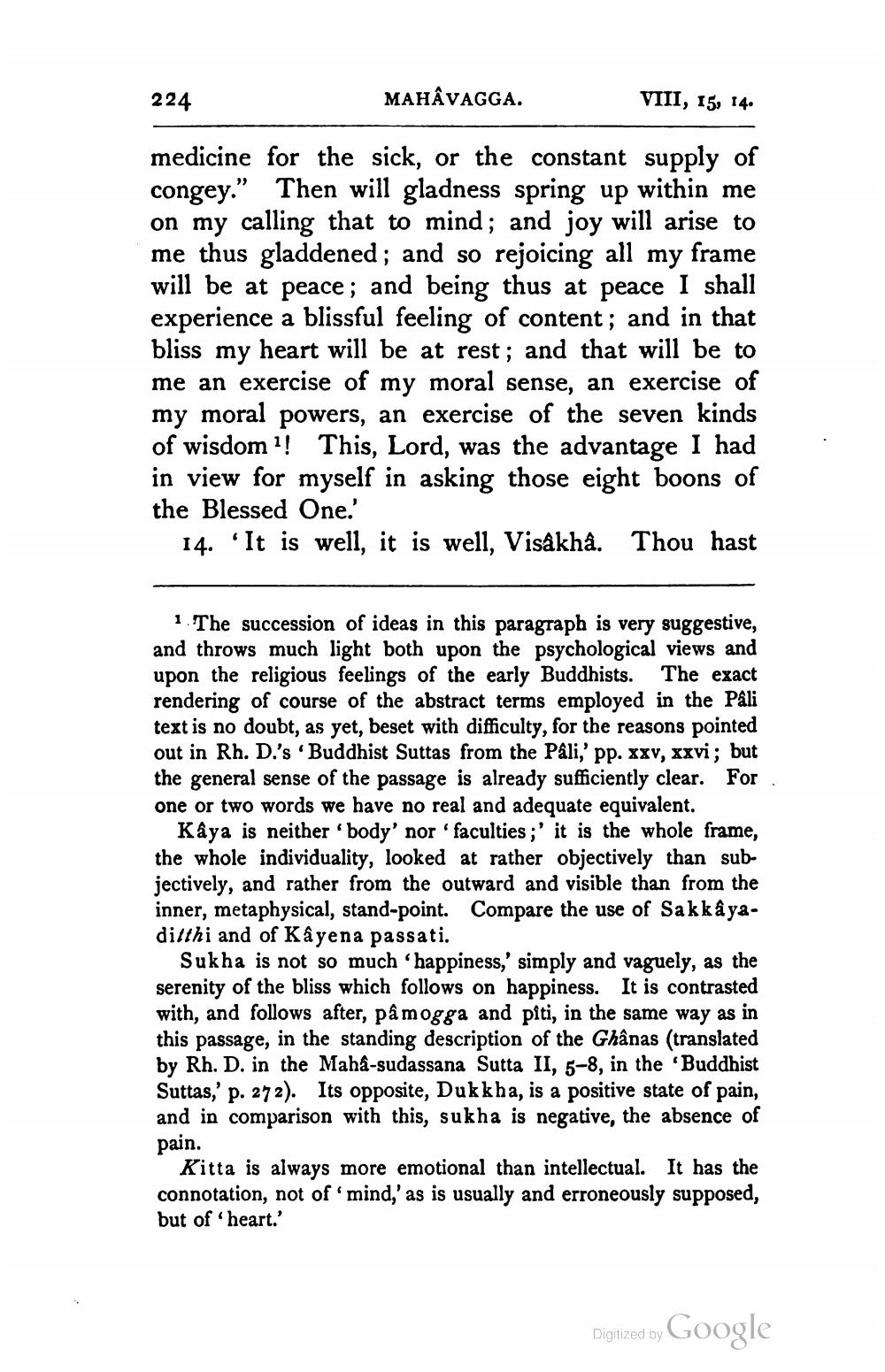________________
224
MAHÂVAGGA.
VIII, 15, 14.
medicine for the sick, or the constant supply of congey.” Then will gladness spring up within me on my calling that to mind; and joy will arise to me thus gladdened; and so rejoicing all my frame will be at peace; and being thus at peace I shall experience a blissful feeling of content; and in that bliss my heart will be at rest; and that will be to me an exercise of my moral sense, an exercise of my moral powers, an exercise of the seven kinds of wisdom !! This, Lord, was the advantage I had in view for myself in asking those eight boons of the Blessed One.'
14. 'It is well, it is well, Visakha. Thou hast
1. The succession of ideas in this paragraph is very suggestive, and throws much light both upon the psychological views and upon the religious feelings of the early Buddhists. The exact rendering of course of the abstract terms employed in the Pali text is no doubt, as yet, beset with difficulty, for the reasons pointed out in Rh. D.'s 'Buddhist Suttas from the Påli,' pp. xxv, xxvi; but the general sense of the passage is already sufficiently clear. For one or two words we have no real and adequate equivalent.
Kaya is neither body' nor 'faculties;' it is the whole frame, the whole individuality, looked at rather objectively than subjectively, and rather from the outward and visible than from the inner, metaphysical, stand-point. Compare the use of Sakk â yaditthi and of Kâyena passati.
Sukha is not so much happiness,' simply and vaguely, as the serenity of the bliss which follows on happiness. It is contrasted with, and follows after, påmogga and piti, in the same way as in this passage, in the standing description of the Ghânas (translated by Rh. D. in the Maha-sudassana Sutta II, 5-8, in the 'Buddhist Suttas,' p. 272). Its opposite, Dukkha, is a positive state of pain, and in comparison with this, sukha is negative, the absence of
pain.
Kitta is always more emotional than intellectual. It has the connotation, not of mind,' as is usually and erroneously supposed, but of heart.'
Digitized by
Digilzed by Google




